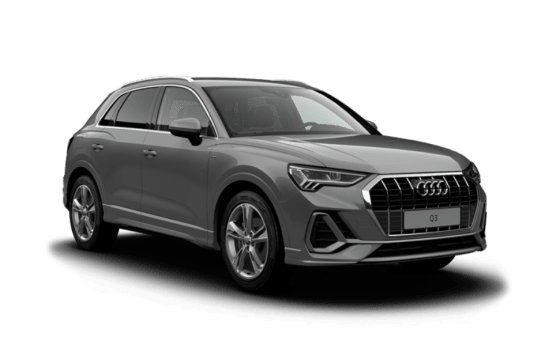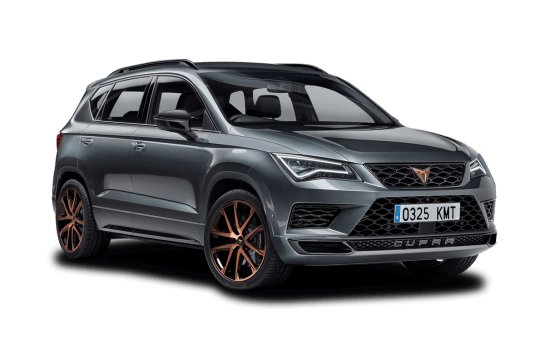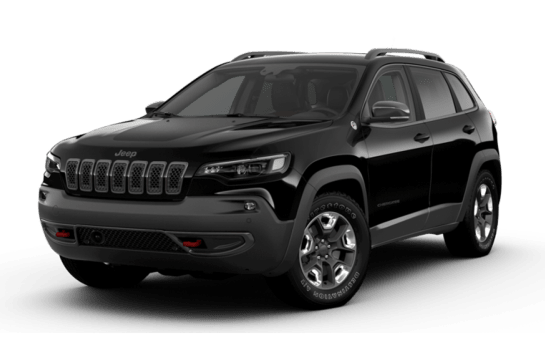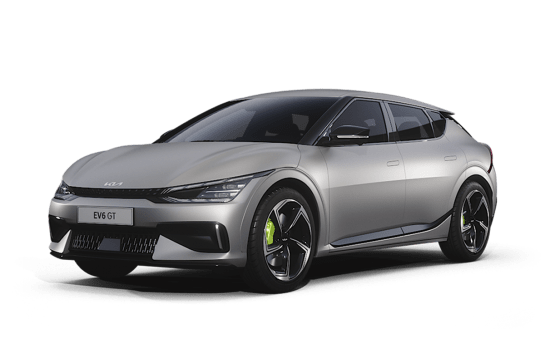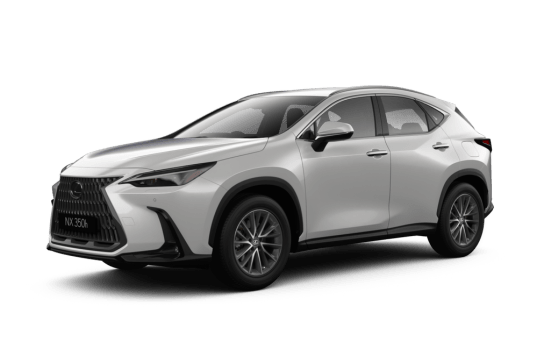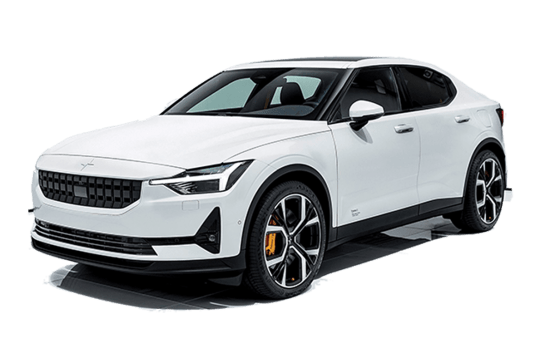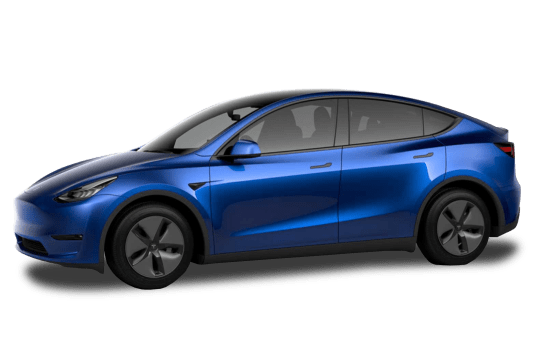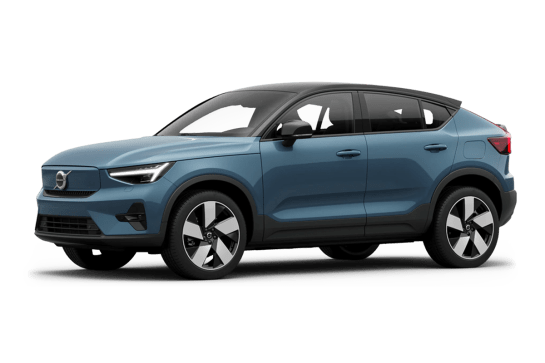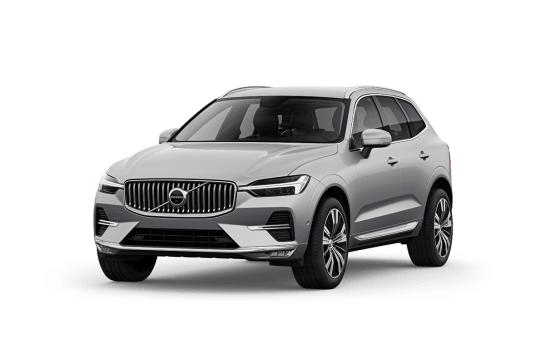
Land Rover Discovery Sport VS Volvo XC60
Land Rover Discovery Sport
Likes
- Cabin is both large and practical
- Economical to run
- Mostly smooth to drive
Dislikes
- Paying extra for features may irk
- More expensive than flagship model
- Some tech needs work
Volvo XC60
Likes
- Safety feature-heavy without being intrusive
- Large and comfortable cabin space
- On-going costs are reasonable
Dislikes
- Cabins of rivals have more visual impact
- The stop/start idling feature can be clumsy
- Option packs are expensive
Summary
Land Rover Discovery Sport
The Land Rover Discovery Sport is the sort of Land Rover you consider if you're not that serious about going off-road but still want something capable, but you don't want a car as large as it's Range Rover cousins.
Bonus points, the P300e mid-spec model I'm testing this week is a plug-in hybrid. So, you get the best of all worlds - capability, decent size and economy.
The new powertrain pits it against the Lexus NX450+, Volvo XC60, Audi Q5 and even the BMW X3 but while the P300e is great on paper, how does it stack-up in real life?
Read more about
- Land Rover Australian sales through the roof: Defender, Discovery and Range Rover Evoque star in spectacular year-on-year increases that leave competitors like Jeep, Mercedes-Benz and Audi in the shade
- England's pricey answer to the Suzuki Jimny? Baby electric version of Land Rover Defender coming by 2027 - report
- But what does it stand for? Land Rover brand axed as Jaguar Land Rover renamed 'JLR' to launch Range Rover, Discovery, Defender and Jaguar as individual brands
| Safety rating | |
|---|---|
| Engine Type | 1.5L turbo |
| Fuel Type | — |
| Fuel Efficiency | 2.1L/100km |
| Seating | 5 seats |
Volvo XC60
Volvo is a brand that has some strong images associated with it. High-end safety, five km/h below the speed-limit-driving-styles, sitting close to the steering wheel, sweater-sets, ‘bloody Volvo driver’ expletives… ahem (present company excluded, of course).
Those who are watching the brand closely know those images are almost defunct because that’s old Volvo and this is new Volvo.
Comfort and safety still appear to be at the top of the brand's priority list but style is being retuned to make this medium-sized SUV a true competitor against its luxury rivals, the BMW X3, Audi Q5 and Lexus NX.
Read more about
I’ve been family-testing the new Ultimate B5 Bright grade for the last few weeks and have thrown road-trips, kids and pets at it!
In this review I’ll unpack how the XC60 has handled life with my family of three.
| Safety rating | |
|---|---|
| Engine Type | 2.0L turbo |
| Fuel Type | — |
| Fuel Efficiency | 7.6L/100km |
| Seating | 5 seats |
Verdict
Land Rover Discovery Sport7.6/10
The Land Rover Discovery Sport P300e has a beautiful and practical cabin space. The powertrain didn't always convince me on the road but it does offer decent economy, if you charge it often.
The media system left a lot to be desired and having to pay around $15K extra for all of the customisations means it's not as affordable as what it initially seems. Still, if you’re looking for a plug-in hybrid with a great cabin and on-road looks, this is a good option.
Volvo XC608.4/10
The Volvo XC60 Ultimate B5 Bright is a fine example of a family car that actually caters to families. There are plenty of practical features inside to help everyday living and it has a good amount of occupant and boot space for the class. I like how it handles on the road and its running costs are reasonable for a luxury SUV. It's not as flashy as its rivals but it's still stylish.
My husband and son spent a lot of time in the XC60 and they have enjoyed a high-level of comfort on our journeys together. We all love the built-in booster seats in the back row because of the independence they offer.
Design
Land Rover Discovery Sport
The updated Disco Sport gets new underpinnings which are shared with the Range Rover Evoque.
The body has seen a minor facelift but honestly, it’s so slight only die-hard fans will notice anything different. Overall, it still has the styling that people know and love.
It’s once you head inside that the facelift becomes far more apparent. Gone is the more traditional looking e-shifter and in its place is a rather nubby-looking one.
The dashboard looks more streamlined and features wider padded accents and in our test model, we have the Oyster and Black upholstery which does make it look quite luxurious. There are a few too many blank spaces for me personally but it looks slick.
Accentuating the dashboard is a floating-effect multimedia system and a large digital instrument cluster – both of which look great but there are no other control buttons or dials. I’m not a fan of the fact that you’re 100 per cent reliant on the tech screens and I'll explain why in the Practicality section.
The optioned panoramic roof makes the cabin feel airy and it's cool that it has a memory function – it will close when you turn off the car but reopen upon starting again.
Volvo XC60
The XC60 looks mature and graceful with its wide stance and well-proportioned body. The pronounced bonnet and stylish grille confirm its luxury SUV credentials.
The LED headlight design has been inspired by ‘Thor's Hammer’ (gotta love that Scandi heritage!) and the chrome accents around the windows accentuate the optioned darker tint.
Despite having a stately kerb-side presence, it’s not a boring looking car. The 20-inch dual-coloured alloy wheels and sleek body panelling help the XC60 appear almost sporty. Overall, its exterior design looks like it will age well.
The interior style of the XC60 can be summed up in two words - understated elegance.
The cabin isn't as flashy or wowing as some of its rivals and that might be because it lacks the visual impact of customisable ambient lighting, or because the chunkier dashboard looks more solid and dependable than sleek and fancy.
Regardless, the high-quality leather-accented upholstery and trim options elevate the space to earn the 'luxury' tag.
There is a plethora of soft-touchpoints throughout the car and visual highlights like chrome accents, an illuminated crystal shifter by Orrefors and a solid-feeling steering wheel.
Practicality
Land Rover Discovery Sport
With it's 4597mm length, 2173mm width and 1727mm height, the Discovery Sport is technically classed as a medium SUV but the cabin space is much larger than it has any right to be.
Both rows have ample head- and legroom for both my 168cm (5ft6') height and those much taller. When you have a co-pilot, you’re also not jostling for elbow room and it’s easy to slide in and out of because of the 212mm ground clearance.
The amenities up front are good with the update seeing more decent sized individual storage options.
There are two cubbies in the centre console as well as two cupholders and a medium-sized middle console. The glove box can hold more than a manual and the storage bins with their single drink bottle holders are also larger than before.
The powered front seats are comfortable and the optioned heat functions are most welcome on the cooler days we've been having lately.
The back seats also have superior padding comfort but you sit on top of, rather than in, them which is typical of an SUV.
The amenities and storage are what you would expect for the grade level with a fold-down armrest with two cup holders and small storage cubby, directional air vents, reading lights, map pockets and small storage bin in each door.
There is also an accessory hole to attach device holders on the backs of the front seats - perfect for hooking up a screen for little ones on a long journey.
The P300e loses points on its practicality with the multimedia system. You eventually get used to using it while on the go, even though the lack of buttons/dials means more time is spent with your eyes on the screen.
That's when the screen turns on. The display has cut out a few times this week and the wireless connectivity for Bluetooth and the connection for Apple CarPlay (wireless or wired) drops out a lot.
The P300e I'm driving is brand-spanking-new, so it may just be a case of something that needs calibrating but for a lot of the Land Rovers I've sampled in the past, the media system seems to be the area with the biggest teething issues.
That being said, the built-in satellite navigation is top-notch and easy to use. The directions also get displayed on the instrument cluster and optioned HUD.
The charging options are excellent with the front row getting three USB-C ports and a large wireless charging pad. The rear gets two USB-A ports and two USB-C ports plus a 12-volt socket and the boot also has a 12-volt socket. Totally spoiled for choice.
The boot is a great size at 897L with all seats in use and that jumps up to 1749L when the rear seats are folded flat. The rear row also has a 40/20/40 split, which opens up storage opens.
There is a temporary spare tyre housed underneath the flat floor and a powered tailgate comes standard in this model, which I always like.
Volvo XC60
Families will appreciate the XC60's cabin. Both rows of seating are roomy for the class and the front seats are supportive and comfortable with multiple adjustments available.
However, there is an electric toggle dial that controls the lumbar-, side-, and under-thigh supports as well as the massage function, but flipping between modes can be a bit confusing at first.
I enjoy having the practical two-position memory function on both front seats, as I’ve been travelling a lot with my husband and the heat/ventilation features on the front seats have been great during a recent run of strange weather.
The back seats are well-cushioned and the bench is wide with three adults being able to sit without too many grumbles.
I have plenty of room for my 168cm height and my seven-year old is able to get in and out without any trouble thanks to the higher ground clearance.
Our absolute favourite feature is built-in child booster cushions in the outboard seats. They have two height positions to accommodate different heights/weights and it’s been wonderful for my son to have the autonomy of buckling himself in. But also just awesome for my husband and I because it’s one less thing to think about!
Storage throughout the car is good for the class with the front enjoying a mid-sized middle console, large glove box, two cupholders and two large drink bottle holders. The extra-large storage bins in the front doors are also very handy.
In the rear, you have two retractable cupholders in the fold-down armrest, two map pockets and two drink bottle holders in each door.
The other amenities are great with the individual climate control and four sets of directional air vents – ideally located on the back of the centre console and on the B-pillars.
Charging options are solid with both rows enjoying two USB-C ports and the front also getting a 12-volt outlet and wireless charging pad. The boot has a 12-volt socket, too.
Onto the other technology, the 9.0-inch touchscreen multimedia system is responsive and relatively easy to get around once you spend some time with it. Along with the Google subscription, you also get wired Apple CarPlay and Android Auto.
The 12.3-inch digital instrument cluster shows the navigation map and the head-up display incorporates directions, which is great.
The cluster itself isn’t customisable, though, and I like fiddling with things like that to personalise the driving experience.
Another practical feature is a secondary key fob which can be programmed to control the maximum speed the car can travel and the audio volume.
I'm sure this would be handy for parents of any P-platers out there who often borrow the family car.
The key fobs are easily distinguishable. too. The spare for our test vehicle is a bright orange colour, so there are no 'whoops, I grabbed the wrong key' arguments, either.
The boot space is a great size at 483L offering plenty of room for holiday luggage. The back seat has a 60/40 split and a ski-port to open up storage options.
The loading space is level and there is a temporary spare tyre underneath the floor. You can adjust the height of the car using the air suspension and I love a powered tailgate.
Price and features
Land Rover Discovery Sport
The Discovery Sport is offered in four grades and the model on test in this review is the plug-in hybrid mid-level P300e.
The P300e is priced from $102,125 before on road costs but the addition of the plug-in hybrid powertrain means that it is actually $8855 more expensive than the flagship HSE.
In terms of its rivals, the P300e sits towards the middle of the line-up with the Volvo XC60 Recharge Plus PHEV coming in as the most affordable at $92,990 before on-road costs, then the Lexus NX450+ PHEV at $93,498. Sitting at the more expensive is the Audi Q5 55 TFSIe at $106,600 and then the BMW X3 xDrive30e M Sport PHEV at $111,800.
However, our test model does have a few optioned extras which ups the price tag and its position in the pack.
Those options include:
- A Technology Pack for $4700 which adds a digital rearview mirror, head-up display, and a 360-degree camera system with wade sensors.
- A fixed panoramic roof for $3040.
- Upgraded Meridian Surround Sound System for $2220.
- Upgraded 20-inch alloy wheels for $2080.
- Heated front seats for $860.
- Home charging cable for $520.
- Titanium mesh trim for $420.
All of that brings the grand total to $117,290, before on roads. Which is no small lump of change for what is essentially just a baby Land Rover.
Standard luxury and practical features include powered front seats with a three-position memory function for the driver, synthetic leather upholstery, keyless entry, push-button start, powered tailgate, temporary spare-tyre, and dual-zone climate control.
Technology includes an 11.4-inch touchscreen multimedia system, 12.3-inch digital instrument cluster, Android Auto, wireless charging pad, Bluetooth connectivity, and DAB+ Digital Radio.
The update also sees wireless connectivity for Apple CarPlay, an Amazon Alexa app, as well as new USB-C ports, as opposed to USB-A ports from the previous model.
Volvo XC60
There are four variants for the XC60, split evenly between the B5 petrol engine and the T8 plug-in hybrid. Our test vehicle is the top-spec Ultimate grade coupled with the B5 petrol engine.
Without any packages, this combination will cost $80,990, before on road costs, which is a $1000 price hike for the 2024 model year.
The standard features list for the XC60 is robust and there are some great premium features, like the electric and heated front seats that feature electrically adjustable under-thigh support, lumbar support and side-bolster support.
The front seats also have a two-position memory function, which I find helpful whenever I share the driving with my husband as there is no hassle for me to get back to a comfy driving position after he drives!
Other premium features include a heated steering wheel, pre-entry climate control (perfect for those super-hot days), premium leather-accented and high-quality trims to choose from.
The technology highlights include a complimentary four-year subscription for the built-in Google Assistant, Google Maps and Google Play Store which are accessed via the portrait-style 9.0-inch touchscreen multimedia system.
There is a 12.3-inch digital instrument cluster, wired Apple CarPlay and Android Auto and a very handy four-zone climate control system.
Other practical features include a handsfree powered tailgate, keyless entry, keyless start, coloured head-up display and a ticket holder on the windscreen, for those odd occasions where you have a physical ticket!
Now, here come the optional packs our model has been fitted with. There’s the 'Climate Pack' for $150 that adds headlight cleaners and a 'Lifestyle Pack' for an additional $13,800.
The latter sounds expensive but you get some lovely features in the pack, like a panoramic sunroof, improved Bowers & Wilkins sound system, Nappa leather upholstery, front seat ventilation, front seat massage function, air suspension and tinted rear windows.
Add on $2050 for the 'Thunder Grey' paintwork and it slides in at $96,990, before on-roads. and that places it towards the top-end of the market compared to its rivals, but the BMW X3 xDrive30i M Sport still just beats it with a $97,900 price tag.
Under the bonnet
Land Rover Discovery Sport
The Discovery Sport P300e has a 1.5-litre, three-cylinder plug-in hybrid turbo-petrol engine with an eight-speed auto transmission and is an all-wheel drive.
The engine produces a combined power output of 227kW and 540Nm of torque. On paper, it’s punchy and can do a 0-100km/h sprint in 6.6 seconds but in practice, it’s not always great at using that power.
Volvo XC60
Volvo is aiming to offer only fully-electric powertrains from 2026 and the new XC60 B5 petrol variants feature a mild-hybrid element designed to improve fuel economy, especially in stop-start traffic.
Our test vehicle has a 2.0-litre, four-cylinder, turbo-petrol powertrain with a maximum power output of 183kW and 350Nm of torque. It’s an all-wheel drive and has a smooth eight-speed auto transmission.
Efficiency
Land Rover Discovery Sport
The official combined fuel cycle consumption figure is 2.1L/100km and my real-world usage sits a 4.8L/100km after doing some open-roading and lots of urban trips this week. For an SUV of this size and with it's power, that's pretty darn good.
The trick is to regularly charge it for maximum fuel economy gains and that's not always practical.
Officially, you get up to 66km of pure electric range in this but expect closer to 47km in the real world.
The P300e has a Type 2 CCS charging port which means you can hook this up to a fast charger. On a 50kW system, you can go from 0-80 per cent in as little as 30 minutes but on a 7kW system, going from 0-100 per cent jumps up to to two hours and 12 minutes.
Expect to leave it on charge overnight on a standard domestic socket.
The driving range based on the official combined fuel cycle is obscene, and I can't see it happening in real life - so, based on my fuel economy figure and the 58L fuel tank, expect a theoretical driving range of up to 1208km.
Volvo XC60
The official combined cycle fuel figure is 7.6L/100km and my real-world usage averaged 8.1L/100km.
That’s pretty economical given that I cover a good mix of open road and urban driving and am not precious with the power.
Based on the combined cycle number and the large 71L fuel tank, expect a driving range of around 934km. To give you an idea of time between fills, I drove it for 14 days before having to fill up.
You can’t sneak in any blends or lower grade fuel though as Volvo recommends a minimum 95 RON premium unleaded be used.
Driving
Land Rover Discovery Sport
The Discovery Sport P300e has the goods on paper when it comes to power and it does... once you're up to speed. That's when you can punch it and feel confident at overtaking or keeping your speed consistent on hills.
It's when you're accelerating from a full-stop that it becomes a bit lacklustre as there's serious lag between accelerating and actually moving forward. Accept that you will have to accommodate for this inaction whenever you are joining or crossing traffic from a standstill.
Besides this little hiccup in the power delivery, handling on the whole is good.
The Disco Sport is easy to manoeuvre and you don’t feel like you’re driving something big, despite the ample cabin space. It also handles itself well in corners without too much roll.
The switch between the electric and petrol components isn’t always the smoothest but when it’s in its electric mode it’s blissfully quiet. The cabin feels refined too because you don’t get a lot of external noise in the cabin at all.
The wide windows and higher ride means visibility is great and the optioned digital rearview mirror adds another viewpoint if the back window isn’t clear.
The Disco Sport proves to be nimble and easy to park with the optioned and clear 360-degree camera system, and the sensors at the front and rear are sensitive.
Volvo XC60
The XC60 is a relaxing car to drive, it does what you expect it to do most of the time. It has enough power to handle open-road touring with ease and while the suspension is on the firmer side, the ride feels well-cushioned.
The only time it skips a beat for me is when you're easing off the accelerator, slowing down, but then need to pick up speed again.
Say, when you find a gap in traffic and begin to merge. There can be a short delay before acceleration happens and it feels somewhat clumsy. But these moments are few and far between.
The cabin is quiet, with minimal wind and road noise. Our family had no issues chatting. It only gets loud inside when heavy rain hits that big panoramic sunroof.
Adaptive steering makes the XC60 feels nimble and horribly tight city streets less daunting. It’s easy to manoeuvre in a small car park, as well.
The clear 360-degree camera system and sensitive front and rear parking sensors also help to make light work of a parking.
Ownership
Land Rover Discovery Sport
The Discovery Sport comes with a five-year/unlimited km warranty and the battery is covered by an eight-year/ 160,000km warranty which is a usual term to see for this class now.
There is a five-year capped-price servicing program which costs a flat $2100, or $420 which is both reasonable for the class and is more affordable than a pay-as-you-go option. There is also a five-year roadside assistance program as a part of your servicing plan through Assist Australia.
Servicing intervals are great at every 12 months or 20,400km, whichever occurs first.
Volvo XC60
It’s not often common to associate a luxury brand with reasonable on-going costs but the Volvo XC60 is offered with very competitive pricing and terms.
The five-year/unlimited km warranty is normal for the class but you can pre-purchase a three-year/45,000km or a five-year/75,000km servicing plan.
The three-year plan is priced at $1750 (averaging $583 per service) and the five-year plan is priced at $3000 (or an average of $600 per service). Both plans are cheaper than a pay-as-you-go option and are inexpensive compared to some rivals.
Servicing intervals are good at every 12 months or 15,000km, whichever occurs first.



